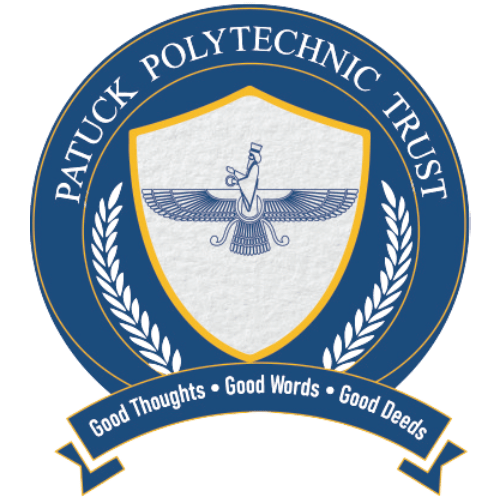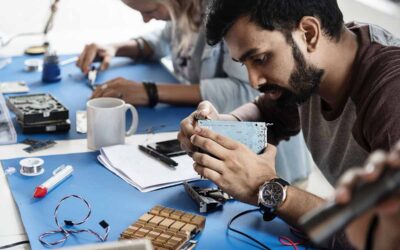Building Resilience: A Key to Overcoming Future Learning Challenges
January 25, 2024

In today’s world, education is changing a lot because of technology, global connections, and new needs. We face challenges like ensuring everyone can use technology, understanding the world, finding better ways to test what we learn, and always learning new things. Patuck Polytechnic Trust is a special school and college that is great at dealing with these challenges and providing a top-notch education.
Future Challenges and Solutions to them:
1. Digital Inclusion: Ensuring Equal Access to Technology
Challenge: Integrating technology in education risks creating a digital divide, disadvantaging students with limited access to technology and the internet. Keeping pace with rapid technological advancements adds a layer of complexity to educational systems.
Solution:
- Provide affordable or free internet access and devices to underserved communities.
- Establish community centres and libraries as technology hubs.
- Forge partnerships with private organisations to support tech access initiatives.
- Offer continuous professional development for educators on tech integration.
- Promote collaboration between educators and tech experts for effective integration.
2. Global Education: Preparing Students for a Borderless World
Challenge: Our interconnected world demands a more globalised education system to prepare students for an international workforce. Incorporating cross-cultural understanding, diverse perspectives, and international collaboration into the curriculum is essential.
Solution:
- Integrate global perspectives, cultural studies, and international collaborations into the curriculum.
- Establish exchange programmes and virtual partnerships with schools globally.
- Encourage foreign language learning for cross-cultural communication.
3. Evolving Assessment Methods: Measuring 21st-Century Skills
Challenge: Traditional assessment methods may need to evaluate 21st-century skills like critical thinking and collaboration. As the landscape of skills evolves, assessments must adapt to measure the practical knowledge and capabilities that are going to be required in the real world.
Solution:
- Explore alternative methods like project portfolios, presentations, and performance assessments.
- Emphasise formative assessments for ongoing student improvement.
- Incorporate competency-based assessments focusing on practical knowledge.
4. Continuous Learning: Embracing Continuous Growth
Challenge: The concept of linear education is evolving; continuous learning is vital due to changing job markets and technology. Educational systems must encourage lifelong learning, supporting individuals in acquiring new skills at various stages of their lives.
Solution:
- Promote a culture of continuous learning within educational institutions.
- Develop flexible learning pathways for acquiring new skills at various life stages.
- Foster partnerships between educational institutions and employers for lifelong learning opportunities.
5. Diminishing Student Mental Health: Prioritising Well-being
Challenge: Student mental health is a growing concern, influenced by academic pressures and societal expectations. A holistic approach to education must prioritise mental health and well-being alongside academic achievement.
Solution:
- Integrate mental health education into the curriculum to reduce stigma.
- Provide counselling services and mental health resources within educational institutions.
- Cultivate a supportive school environment that values well-being alongside academic achievement.
6. Environmental Sustainability: Educating for the Future
Challenge: With increasing environmental awareness, education must incorporate sustainability into its curriculum. Fostering a sense of responsibility towards the planet and preparing students for environmental challenges becomes increasingly important.
Solution:
- Infuse environmental education into the curriculum, emphasising sustainability.
- Implement eco-friendly practices within educational institutions, such as energy conservation and waste reduction.
- Encourage student-led initiatives for environmental conservation and community engagement.
At Patuck Campus, there are roughly 60 Solar panels installed and well maintained that generate a minimum of 20% of the energy that is consumed by the college.
Wrapping Up:
Patuck Polytechnic Trust is like a guiding light in the world of education. They make sure everyone can use technology, understand the world, learn in new ways, and take care of the environment. This school is not just about books; it’s about helping students grow into smart, kind, and aware people. In a big world where things are always changing, Patuck Polytechnic Trust is one of the best places that prepares students for the future and cares about our world.
You May Also Like…
The Silent Killer: How Poor Communication Skills Undermines Good Initiatives
In a world teeming with brilliant ideas, it’s not always the idea itself that determines its success. Often, it’s how well that idea is communicated that makes all the difference. Welcome to the world where poor communication silently undermines the very initiatives it seeks to champion.
A Deep Dive Into Career Options After 10th Standard
Are you at the crossroads of your academic journey, pondering over the myriad of career options ahead? As you embark on this exhilarating yet daunting quest, it’s crucial to equip yourself with the right knowledge to make informed decisions.
The Evolution of Minimum Competency Vocational Courses (MCVC) Empowering the youth
In recent years, there has been a significant shift in the educational landscape, with vocational courses gaining immense importance.



